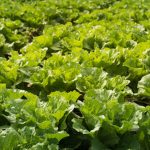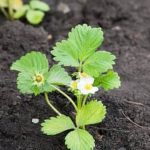When it comes to maintaining a thriving vegetable garden, the use of insect repellent is often necessary to protect crops from pests. However, the safety of these products is a significant concern for many gardeners. One common question that arises is, “is Cutter Backyard Spray safe for vegetable gardens?” Understanding the importance of using safe insect repellent in vegetable gardens is crucial for ensuring the health and well-being of both plants and those who consume them.
Cutter Backyard Spray is a popular insect repellent that many gardeners turn to for protecting their vegetable gardens. In this section, we will explore what exactly Cutter Backyard Spray is and its intended use in keeping insects at bay. It’s essential to understand the product before delving into its safety and potential effects on vegetable gardens.
The next sections will delve into the ingredients found in Cutter Backyard Spray and analyze their potential impact on vegetable gardens. The article will also discuss any potential risks associated with using this product, along with safety precautions that can be taken when using Cutter Backyard Spray in vegetable gardens.
Exploring alternative options for safe insect repellents in vegetable gardens will also be covered to provide readers with various choices for protecting their crops without compromising their safety or the well-being of the environment.
What Is Cutter Backyard Spray
Cutter Backyard Spray is a popular insect repellent product designed for outdoor use, including gardens and yards. It is specifically formulated to repel and kill mosquitoes, ants, fleas, and other nuisance insects that can disrupt outdoor activities. The spray is intended to create a barrier of protection around the treated area, providing relief from annoying pests.
Cutter Backyard Spray contains active ingredients such as Permethrin and Tetramethrin, which are known for their insecticidal properties. These chemicals work by targeting the nervous system of insects, leading to paralysis and eventually death. Additionally, the product also includes inert ingredients such as petroleum distillates and other solvents which help to disperse the active components effectively.
Potential Benefits of Using Cutter Backyard Spray:
- Effectively controls and repels mosquitoes, ants, fleas, and other common garden pests
- Provides up to 12 weeks of protection against listed insects
- Easy-to-use spray bottle application for convenient use in vegetable gardens
However, it is important to note that Cutter Backyard Spray may pose potential risks to vegetable gardens due to its chemical composition. It is crucial for gardeners to understand the possible implications of using this product in their vegetable plots and take necessary precautions to ensure the safety of their produce.
Ingredients in Cutter Backyard Spray
Cutter Backyard Spray is a popular insect repellent used to keep bugs at bay in outdoor spaces like gardens. However, many gardeners are wary of using chemical-based products in their vegetable gardens, as they want to ensure the safety of their produce. In this section, we will take a closer look at the ingredients in Cutter Backyard Spray and analyze their potential effects on vegetable gardens.
Active Ingredients
The active ingredients in Cutter Backyard Spray typically include substances such as DEET or Picaridin, which are widely used in insect repellents for their effectiveness in repelling mosquitoes, flies, and other pests. While these chemicals can effectively deter insects from your garden, there is concern about the impact they may have on edible plants.
Potential Effects on Plants
Some gardeners worry that the chemicals in Cutter Backyard Spray could be absorbed by their vegetable plants, leading to contamination of fruits and vegetables with potentially harmful substances. There is also the possibility that these chemicals could disrupt the natural ecosystem of the garden by harming beneficial insects such as bees and butterflies.
Environmental Impact
In addition to its potential effects on plants and beneficial insects, there is also concern about the broader environmental impact of using Cutter Backyard Spray in vegetable gardens. Chemical residues from the spray could leach into the soil and affect groundwater, which may have long-term consequences for the surrounding ecosystem.
As we delve into the analysis of Cutter Backyard Spray’s ingredients and their potential effects on vegetable gardens, it becomes clear that caution must be exercised when using this product in proximity to edible plants. It is crucial for gardeners to weigh the benefits of insect control against the potential risks to their produce and the environment when considering using Cutter Backyard Spray in their vegetable gardens.
Potential Risks to Vegetable Gardens
When considering the use of Cutter Backyard Spray in vegetable gardens, it is important to be aware of the potential risks that may arise from its application. While this product is designed to effectively repel insects and protect outdoor spaces, including gardens, there are certain factors that gardeners should take into consideration before using this insect repellent.
Impact on Plants
One potential risk of using Cutter Backyard Spray in vegetable gardens is the impact it may have on the plants themselves. Some of the ingredients in this product, such as the active ingredient, can potentially be harmful to certain types of plants. It is important to carefully read and understand the product label to determine if any specific plant species may be sensitive to the spray.
Soil Contamination
Another concern is the potential for soil contamination from repeated use of Cutter Backyard Spray. The chemical components of the spray can seep into the soil over time, impacting both the immediate area where it was applied and potentially affecting surrounding areas. This can have long-term effects on soil health and could impact the growth of vegetables in a garden.
Impact on Beneficial Insects
In addition to potential harm to plants and soil, another risk factor to consider is the impact on beneficial insects in vegetable gardens. While Cutter Backyard Spray targets harmful pests, it may also affect beneficial insects such as pollinators or natural predators that help maintain ecological balance in a garden setting. This could lead to unintended consequences for overall garden health.
Being mindful of these potential risks can help gardeners make informed decisions about whether Cutter Backyard Spray is suitable for use in their vegetable gardens. It is important to weigh these considerations against potential benefits and explore alternative options for safe insect repellents in vegetable gardening.
Safety Precautions
Cutter Backyard Spray is a popular insect repellent that many homeowners use to keep their outdoor spaces free from pesky bugs. However, when it comes to using this product in vegetable gardens, there are important safety precautions to keep in mind.
First and foremost, it is essential to read the label on the Cutter Backyard Spray carefully before using it in your vegetable garden. Pay close attention to any warnings or restrictions regarding its use around edible plants. This will give you valuable information about whether the product is safe for your specific garden.
When applying Cutter Backyard Spray in your vegetable garden, make sure to do so when the wind is calm. This will help prevent the spray from drifting onto your edible plants and potentially causing harm. It is also advisable to wear protective clothing, such as long sleeves and gloves, during application to minimize skin contact with the product.
In addition, always follow the recommended application rates and frequency provided on the Cutter Backyard Spray label. Avoid overusing the product, as this can increase the likelihood of chemical buildup in your soil and potential contamination of your produce. By adhering to these safety precautions, you can help ensure that using Cutter Backyard Spray in your vegetable garden is done as safely as possible.
| Safety Precaution | Recommendation |
|---|---|
| Read Label Carefully | Check for warnings or restrictions regarding use around edible plants |
| Apply in Calm Conditions | Avoid spraying when wind may cause drift onto edible plants |
| Use Protective Clothing | Wear long sleeves and gloves during application |
| Follow Application Guidelines | Adhere to recommended rates and frequencies of use |
Alternatives to Cutter Backyard Spray
When it comes to protecting your vegetable garden from pests, it’s important to consider safe and effective insect repellent options. While Cutter Backyard Spray is a popular choice for many gardeners, there are also alternative products that can help keep your vegetables safe without potentially harmful effects. Here are some safe insect repellent options to explore for your vegetable garden:
- Neem Oil: Neem oil is a natural insect repellent that is safe to use on vegetable gardens. It works by disrupting the feeding and mating behavior of insects, making it an effective and non-toxic option for pest control.
- Diatomaceous Earth: This powdery substance is made from fossilized diatoms and works by dehydrating insects upon contact. It can be sprinkled around the perimeter of your vegetable garden to effectively repel pests without posing any harm to your plants.
- Garlic spray: Garlic has natural insect-repelling properties, and a homemade garlic spray can be used to ward off pests from your vegetable garden. To make the spray, simply blend garlic cloves with water and strain the mixture before spraying it onto your plants.
These alternatives offer safe and effective ways to protect your vegetable garden from pests without having to rely on potentially harmful chemicals. When considering which option is best for your garden, it’s important to assess the specific needs of your plants as well as any potential environmental impacts.
Additionally, integrating companion planting techniques or physical barriers such as row covers can also contribute to the overall health and pest resistance of your vegetable garden. By exploring these alternative options, you can maintain a thriving and healthy garden while avoiding any potential risks associated with using Cutter Backyard Spray or similar products.
Conclusion
In conclusion, it’s important to carefully consider the use of Cutter Backyard Spray in vegetable gardens. While this product is designed to effectively repel insects, its ingredients may pose some risks to the health of your plants and the safety of the produce grown.
The potential negative impacts of using Cutter Backyard Spray on vegetable gardens include the possibility of chemical residue on fruits and vegetables, as well as harm to beneficial insects that contribute to a healthy garden ecosystem.
While there are safety precautions that can be taken when using Cutter Backyard Spray in vegetable gardens, such as applying it at the appropriate times and avoiding direct contact with edible parts of plants, there is still a level of risk involved. As an alternative, gardeners may want to explore other safe insect repellent options for their vegetable gardens. This could include natural homemade solutions or commercially available products that are specifically formulated for use on edible plants.
Ultimately, whether or not Cutter Backyard Spray is safe for vegetable gardens depends on individual risk tolerance and environmental concerns. It’s important for gardeners to carefully weigh the potential benefits against the potential drawbacks before making a decision about using this product in their own gardens. Prioritizing the safety and health of your plants, produce, and local ecosystem is crucial in maintaining a thriving and sustainable vegetable garden.
Frequently Asked Questions
How Long to Wait After Using Cutter Backyard Bug Control?
After using Cutter Backyard Bug Control, it’s recommended to wait until the spray has dried completely before allowing people or pets to enter the treated area. This typically takes about 30 minutes to 1 hour.
How Long After Spraying Cutter Can Dogs Be Outside?
Dogs should be kept away from the sprayed area until the Cutter Backyard Bug Control has dried completely. This usually takes around 30 minutes to 1 hour, but it’s best to consult the product label for specific instructions.
Is Cutter Backyard Bug Control Safe for Chickens?
While Cutter Backyard Bug Control is considered safe for use around poultry, it’s important to follow the instructions on the product label carefully. Keep chickens out of the treated area until the spray has fully dried, and avoid spraying directly onto them or their living quarters.

If you’re looking to get into vegetable gardening, or are just looking for some tips on how to make your current garden better, then you’ve come to the right place! My name is Ethel and I have been gardening for years. In this blog, I’m going to share with you some of my best tips on how to create a successful vegetable garden.





